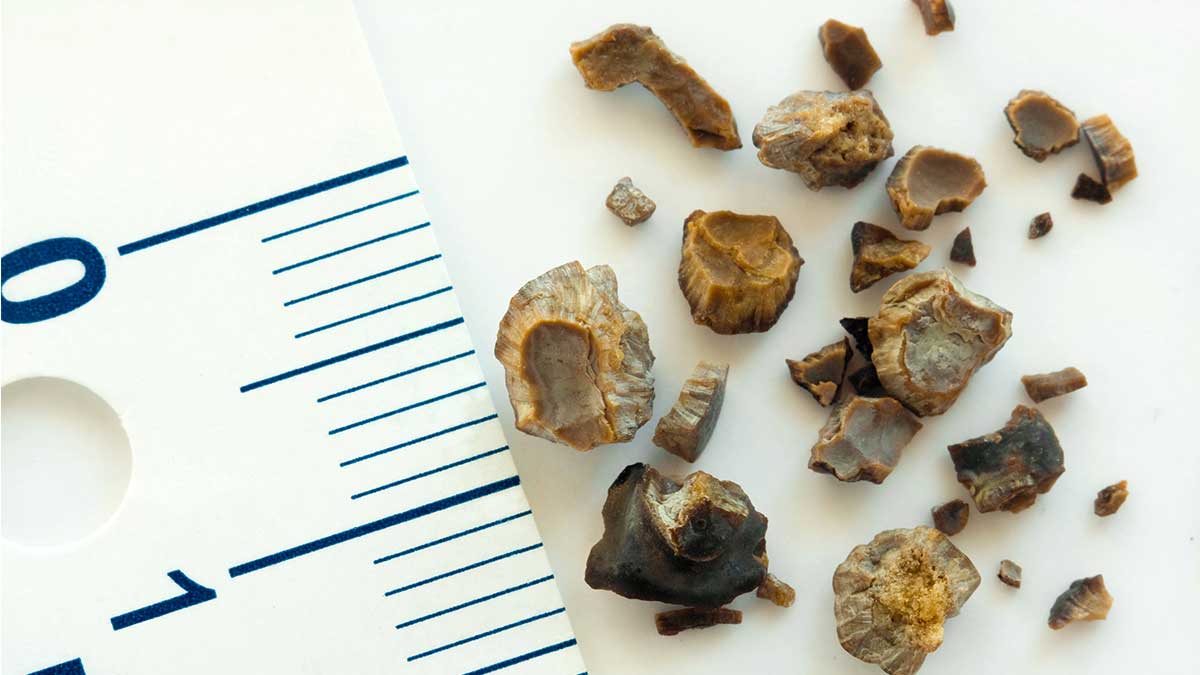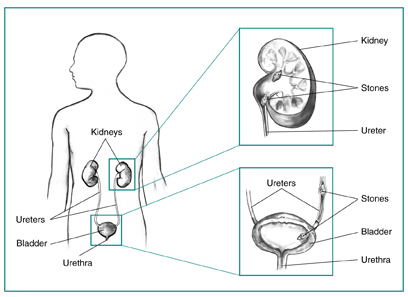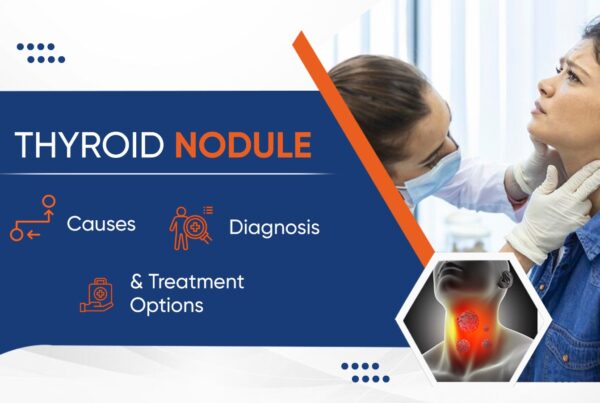Table of Contents
KIDNEY STONES
 Heads – up
Heads – up
- At the same time, your urine may lack substances that prevent crystals from sticking together, creating an ideal environment for kidney stones to form.
- In other words, your kidneys remove waste and fluid from your blood to make urine. Sometimes, when you have too much of certain wastes and not enough fluid in your blood, these wastes can build up and stick together in your kidneys. These clumps of waste are called kidney stones.
What are the causes and risk factors of kidney stones?
Kidney stones form when your urine contains more crystal-forming substances — such as calcium, oxalate, and uric acid — than the fluid in your urine can dilute. At the same time, your urine may lack substances that prevent crystals from sticking together, creating an ideal environment for kidney stones to form.
Anyone can get a kidney stone, but some people are more likely than others to have them. Men get kidney stones more often than women do. Kidney stones are also more common in non-Hispanic white people than in people of other ethnicities. You may also be more likely to have kidney stones if:
- You have had kidney stones before.
- Someone in your family has had kidney stones.
- You don’t drink enough water.
- You follow a diet high in protein, sodium, and/or sugar.
- You are overweight or obese.
- You have had gastric bypass surgery or another intestinal surgery.
- You have polycystic kidney disease or another cystic kidney disease.
- You have a certain condition that causes your urine to contain high levels of cystine, oxalate, uric acid, or calcium.
- You have a condition that causes swelling or irritation in your bowel or your joints.
- You take certain medicines, such as diuretics (water pills) or calcium-based antacids.
Risk Factors
- Family or personal history
- Dehydration
- Certain diets
- Obesity
- Digestive diseases and surgery
Symptoms
- Severe, sharp pain in the side and back, below the ribs
- Pain that radiates to the lower abdomen and groin
- Pain that comes in waves and fluctuates in intensity
- Pain or burning sensation while urinating
Other signs and symptoms may include:
- Pink, red, or brown urine
- Cloudy or foul-smelling urine
- A persistent need to urinate, urinating more often than usual or urinating in small amounts
- Nausea and vomiting
- Fever and chills if an infection is present
If you have a larger kidney stone, you may notice any of the following symptoms:
- Pain while urinating
- Blood in your urine
- Sharp pain in your back or lower abdomen
- Nausea and vomiting
If you are having any of these symptoms, contact your health care provider.
Types of kidney stones
- Calcium stones are the most common type of kidney stones. They are usually made of calcium and oxalate (a natural chemical found in most foods) but are sometimes made of calcium and phosphate.
- Uric acid stones form when your urine is often too acidic. Uric acid can form stones by itself or with calcium.
- Struvite stones can happen when you have certain types of urinary tract infections in which bacteria make ammonia that builds up in your urine. Struvite stones are made of magnesium, ammonium, and phosphate.
- Cystine stones are made of a chemical that your body makes naturally, called cystine. Cystine stones are very rare and happen in people who have a genetic disorder that causes cystine to leak from the kidneys into the urine.
How can I prevent it?
The best way to prevent most kidney stones is to drink enough fluids every day. Most people should drink eight to 12 cups of fluid per day. If you have kidney disease and need to limit fluids, ask your doctor how much fluid you should have each day.











